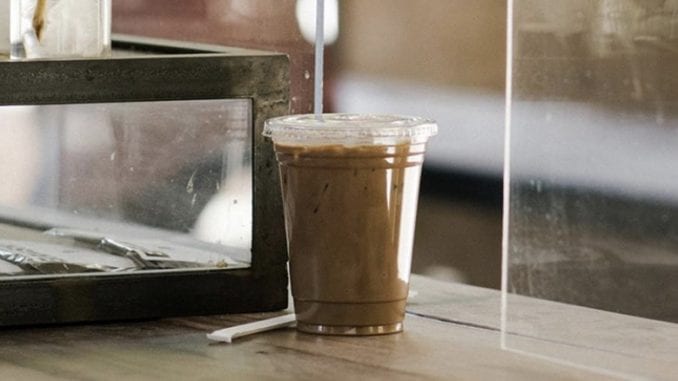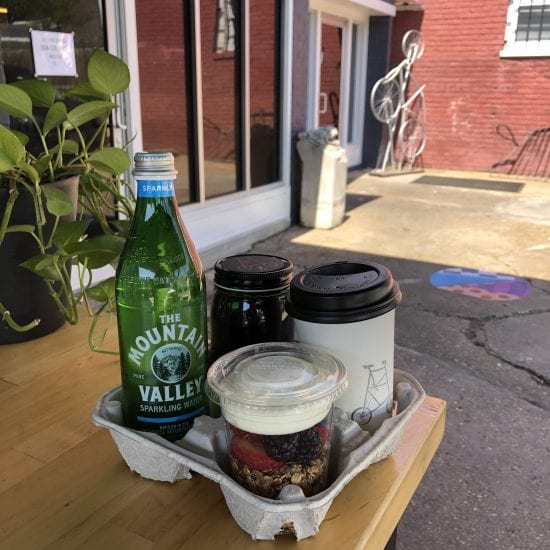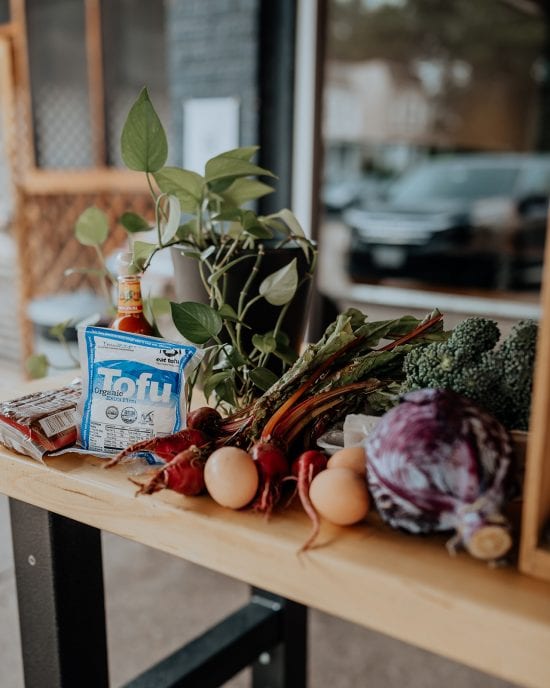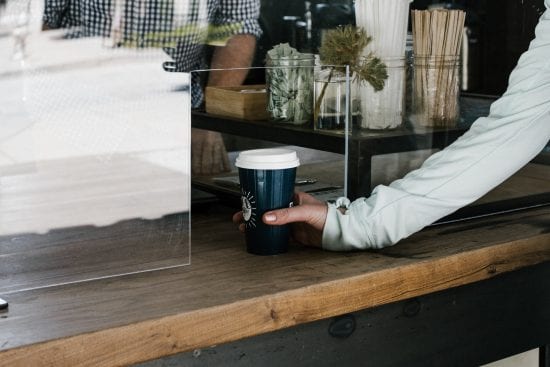
One café sees COVID-19 as a chance to rebuild a more equitable company, while another creatively adapts.
BY MARK VAN STREEFKERK
BARISTA MAGAZINE ONLINE
Cover photo courtesy of BRASH Coffee Roasters
Even as stay-at-home restrictions begin to lift in some states, many U.S. cafés are finding that there is no going back, at least not in the pre-COVID sense of the word. In our four-part series about what reopening, or operating at greater capacity, looks like for coffee businesses, we found most specialty cafés aren’t “going back to normal” anytime soon. Though some states may have increased the number of people allowed in a space, most businesses are maintaining their own strict protocols and takeout adaptations for the foreseeable future.

In today’s final installment of our “New Normal” series, we take a look at two Southeast cafés in the United States: one that has embraced COVID-19 as a season to reevaluate their business structure and community involvement, and another that has adapted in creative, tech-savvy ways. Be sure to check out our previous installments on reopenings at West Coast, Southwest, and Northeast cafés.
The pandemic motivated Lamplighter Coffee Roasters in Richmond, Va., to make community-minded choices, and enact change within the company from the ground up. Although Lamplighter’s three locations quickly switched to takeout protocol before official mandates, they ended up closing all their locations on March 23, and reopened their Addison Street location on April 11. Their café at the Virginia Commonwealth University remains closed, and may be permanently. Lamplighter’s roast lab and coffee bar location is closed for business, but they’ve donated the space for use by Richmond Mutual Aid. “They are using the whole coffee bar to intake and distribute community donations,” says co-owner and managing partner Noelle Forest. “The whole time we keep that bar closed, we’re going to allow them to use that space until we reopen. It’s an activist organization that’s just people helping other people.”

When reopening the Addison Street location, Lamplighter overhauled the menu to focus on locally sourced, nutrient-dense and affordable items like kale salads and breakfast burritos. The change was inspired by the fact that a lot of their neighbors don’t cook and rely on restaurants to eat. Lamplighter is also selling several grocery items in addition to coffee and menu offerings. Orders can be made online or over the phone, to-go drinks are made in reusable glass jars, and they still accept cash. “I think that there are real significant access issues and class issues with not accepting cash. We have been safely accepting cash,” Noelle says.
At the onset of COVID-19, Lamplighter had 77 employees, and making the choice to lay off most of them was “really tragic,” says Noelle, who adds that starting over in a very real sense is an opportunity to rebuild in a more equitable way. “We started (Lamplighter) with one tiny space, with no traditional resources at all,” Noelle says. “We just rented a tiny space, renovated it ourselves, and opened it up with nothing. We’ve built it to this larger company, and we’ve kind of started going down a lot more traditional business routes as we grew. Now that everything has been completely shut down, it’s an opportunity to evaluate. … We really don’t want to build it back up just the same way it was before. We’ve raised the minimum pay wage for all staff. We’ve implemented sick leave. Everyone on the team is actively involved in developing the criteria for reopening and giving input. It’s been really cool to have a smaller group again to be able to directly include everyone who’s doing that work.”

For Atlanta-based BRASH Coffee Roasters, COVID-19 has “been a blow but we’ve managed to adapt and reinvent,” says owner Chris McLeod. BRASH’s three locations, including a roasting facility, never closed, just shifted to mandated takeout only. Adjustments were easier due to the fact that their flagship location is made of two reclaimed shipping containers, a 360-square-foot space that’s “quite adaptable.” The pickup area now has a 5-by-7-foot plexiglass dividing wall between masked baristas and customers. At their two other locations, plexiglass barriers separate staff and customers, signage directs traffic, and there are socially distanced waiting areas with minimal outdoor seating.
“Georgia was one of the first states in the U.S. to reopen the economy,” says Chris. “Our phones all started ringing, and they still are, with people calling wanting to come into the cafés to work or to meet. We’ll continue to observe all the practices that I’ve mentioned through at least the end of June, which is no people in the cafés, but I suspect we may do it through the end of July. I’d rather focus on being able to roast really good coffee, and serve customers a really good product in a safe environment. If that means it takes an extra five minutes to get your coffee, that’s the reality until there’s some sort of therapeutic or vaccine.”
BRASH is also developing an in-house app with Huge advertising agency, a partner at their Midtown location. Customers can order through the app, and be directed to a particular part of the café to an enhanced pickup area. Once the barista makes the drink and places it on the pickup platform, a digital projection will announce the customer’s name and drink. It’s a creative, tech-driven way to usher in a contactless world.
While some parts of the U.S. are raring to reopen, expect to see most specialty cafés continuing as they are, with masked baristas, contactless pickup, and even bodega-style grocery items for sale. It’s just part of our new normal.

ABOUT THE AUTHOR
Mark Van Streefkerk is Barista Magazine’s social media content developer and a frequent contributor. He is also a freelance writer, social media manager, and novelist based out of Seattle. If Mark isn’t writing, he’s probably biking to his favorite vegan restaurant. Find out more on his website.
